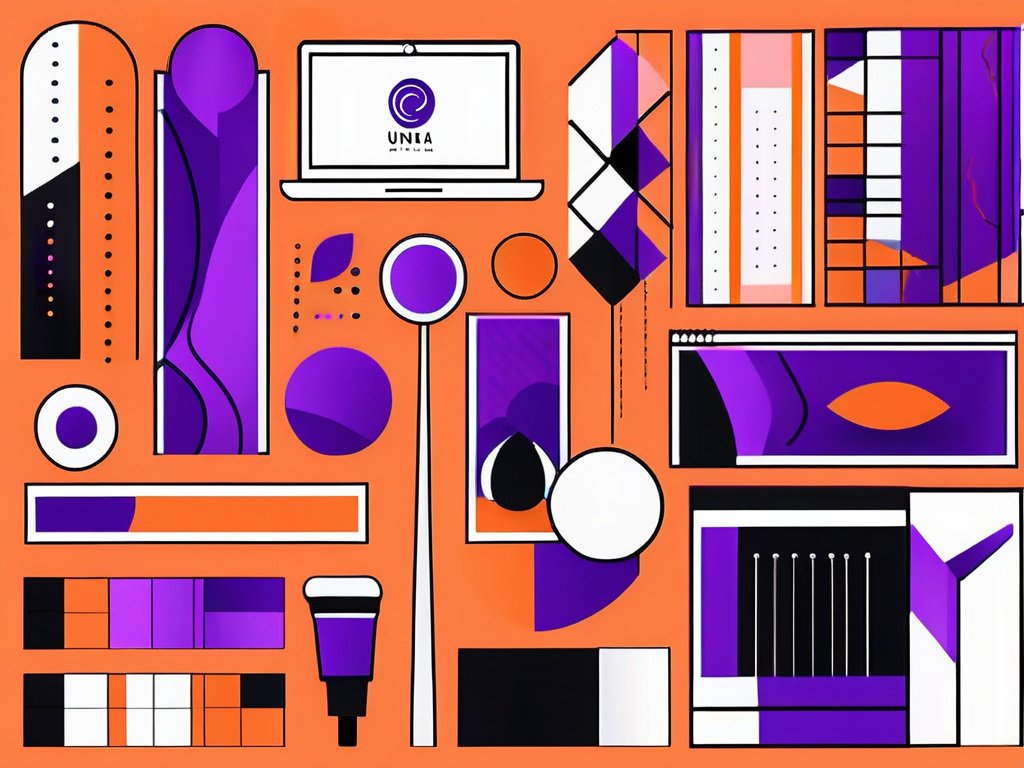Did you know that 77% of consumers make their purchasing decisions based on a company’s brand? That’s right, your brand is not just a logo or a catchy tagline.
It’s the essence of your business, the perception customers have of you, and the overall experience they associate with your products or services.
In today’s competitive market, branding has become an essential factor for small businesses to thrive and differentiate themselves from the competition. But how high are branding costs for small businesses? Let’s dive in and find out!
Table of Contents
ToggleBranding Costs Breakdown for Small Businesses Based on Key Factors Influencing the Price
Let’s explore the factors that can influence the cost of creating and maintaining a strong brand for your small business, as well as the exact price you can expect to pay based on those factors.
1. Designing a Logo and Visual Identity
Your logo is the visual representation of your business and often the first thing customers notice about your brand.
Investing in professional logo design can range from a few hundred to several thousand dollars, depending on the complexity and skill level required.
Additionally, creating a cohesive visual identity, including typography, color palette, and graphic elements, contributes to the overall branding cost.

When designing a logo, it’s important to consider the psychology behind colors and shapes. Different colors evoke different emotions and can influence how customers perceive your brand. For example, blue is often associated with trust and reliability, while red can convey energy and excitement.
Similarly, shapes can communicate different messages. A rounded logo may suggest friendliness and approachability, while angular shapes can convey strength and stability.
2. Creating a Brand Strategy
A brand strategy outlines the messaging, positioning, and target customer profiles for your small business. Developing a comprehensive brand strategy involves:
- conducting market research
- competitor analysis
- customer surveys
While you can create a basic brand strategy yourself, hiring a branding agency or consultant can provide valuable expertise and insights.
Depending on the scope of the project, this can range from a few thousand to tens of thousands of dollars.
When creating a brand strategy, it’s essential to define your brand’s unique selling proposition (USP). This is the aspect of your business that sets you apart from your competitors and gives customers a compelling reason to choose your brand.
It could be your exceptional customer service, innovative product features, or commitment to sustainability. Identifying and highlighting your USP in your brand strategy helps you create a distinct and memorable brand identity.
3. Developing a Website and Online Presence
In today’s digital age, having a strong online presence is crucial for small businesses. Developing a well-designed and functional website is an essential part of your branding efforts.
The cost of website development can vary depending on the complexity and features required.
Additionally, costs that contribute to the overall one are:
- ongoing website maintenance
- content creation
- search engine optimization (SEO)
When developing a website, it’s important to consider user experience (UX) design. A user-friendly website that is easy to navigate and visually appealing can enhance your brand’s credibility and encourage visitors to explore further.
Incorporating responsive design ensures that your website looks and functions well on different devices, such as smartphones and tablets. Furthermore, optimizing your website for search engines through SEO techniques can improve your online visibility and attract more organic traffic.
Two Main Types of Branding Costs Explained
Now that we have explored the factors influencing branding costs, let’s break down the different types of expenses you may encounter when it comes to branding for your small business.
Branding costs can be categorized into two main types:
- initial branding costs
- ongoing branding expenses
While the initial branding costs are crucial for establishing a strong brand foundation, ongoing branding expenses are essential for maintaining and growing your brand presence over time.

Initial Branding Costs
The initial branding costs typically involve one-time expenses such as:
- logo design
- website development
- brand strategy development
- marketing collateral design
These costs are upfront investments in creating a strong foundation for your brand and can range from a few thousand to tens of thousands of dollars, depending on the complexity and scope of the project.
Ongoing Branding Expenses
Branding is not a one-time effort. It requires consistent nurturing and maintenance. Ongoing branding expenses include website maintenance, content creation, social media management, advertising costs, and brand monitoring tools.
These expenses can vary depending on the size of your business and the level of marketing activities, ranging from a few hundred to several thousand dollars per month.
How to Budget for Branding
Now that you have a better understanding of the various branding costs, let’s explore how to budget effectively for your small business branding efforts.
For example, if you have a B2B fulfillment business it helps differentiate your products or services from competitors and creates a lasting impression on your target audience. A well-thought-out branding strategy can significantly impact your business’s success and growth.
Setting a Branding Budget
Before allocating funds for branding, it’s important to assess your business’s financial situation and set a realistic budget. Consider:
- your current revenue
- projected growth
- other operational expenses
Ideally, aim to allocate around 5-10% of your annual revenue for branding activities. However, this percentage can vary depending on your industry, competition, and growth goals.
It’s also essential to consider the long-term benefits of investing in branding. While it may seem like an additional expense in the short term, a strong brand can lead to increased customer loyalty, higher sales, and a competitive edge in the market.
Allocating Funds for Different Branding Elements
Once you have set a branding budget, it’s crucial to allocate funds strategically across different branding elements. Identify your priorities based on your business goals and allocate a higher percentage of your budget to critical areas.
Regularly review your branding strategies and adjust your budget allocation based on the performance of different elements. By continuously refining your branding efforts, you can ensure that your business stays relevant and competitive in the ever-evolving market landscape.
Tips for Reducing Branding Costs
While branding is an investment, there are ways to reduce costs without compromising the quality and effectiveness of your branding efforts. Here are some tips to help you save money:

1. Leveraging Free and Low-Cost Branding Tools
There are numerous free and low-cost branding tools available online that can help you create professional-looking designs, develop content, and manage your online presence. Utilize platforms such as Canva, MailChimp, and Hootsuite to streamline your branding activities without breaking the bank.
Canva, for example, offers a user-friendly interface with a wide range of design templates for:
- social media posts
- logos
- business cards
- …and more
MailChimp is a popular email marketing platform that allows you to create and send branded newsletters to your audience. Hootsuite, on the other hand, enables you to schedule social media posts in advance, saving you time and effort in managing your online presence.
2. Working with Freelancers and Agencies
Consider working with freelancers or branding agencies instead of hiring a full-time in-house team. Freelancers often offer competitive rates and bring specialized skills to the table. Agencies can provide comprehensive branding services tailored to your specific business needs. Be sure to research and vet potential freelancers or agencies to ensure they align with your brand vision and goals.
Freelancers can bring fresh perspectives and creativity to your branding efforts, offering a flexible approach to project-based work.
On the other hand, branding agencies bring a wealth of experience and expertise, handling everything from logo design to social media strategy. Collaborating with external experts can help you achieve professional results while staying within your budget.
Allocate Your Funds with Confidence!
Remember, building a strong brand for your small business takes time and dedication. While it may require some financial investment, the return on investment can be substantial.
By understanding the importance of branding, strategically budgeting for branding activities, and exploring cost-saving measures, you can create a brand that resonates with your audience and fuels the growth of your small business.






